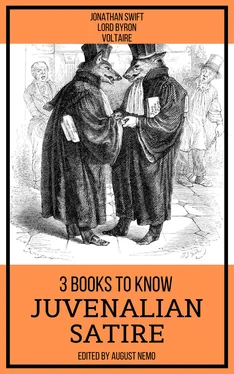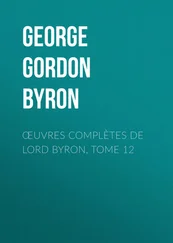And many deaths do they escape by this:
The death of friends, and that which slays even more—
The death of friendship, love, youth, all that is,
Except mere breath; and since the silent shore
Awaits at last even those who longest miss
The old archer's shafts, perhaps the early grave
Which men weep over may be meant to save.
Haidee and Juan thought not of the dead—
The heavens, and earth, and air, seem'd made for them:
They found no fault with Time, save that he fled;
They saw not in themselves aught to condemn:
Each was the other's mirror, and but read
Joy sparkling in their dark eyes like a gem,
And knew such brightness was but the reflection
Of their exchanging glances of affection.
The gentle pressure, and the thrilling touch,
The least glance better understood than words,
Which still said all, and ne'er could say too much;
A language, too, but like to that of birds,
Known but to them, at least appearing such
As but to lovers a true sense affords;
Sweet playful phrases, which would seem absurd
To those who have ceased to hear such, or ne'er heard,—
All these were theirs, for they were children still,
And children still they should have ever been;
They were not made in the real world to fill
A busy character in the dull scene,
But like two beings born from out a rill,
A nymph and her beloved, all unseen
To pass their lives in fountains and on flowers,
And never know the weight of human hours.
Moons changing had roll'd on, and changeless found
Those their bright rise had lighted to such joys
As rarely they beheld throughout their round;
And these were not of the vain kind which cloys,
For theirs were buoyant spirits, never bound
By the mere senses; and that which destroys
Most love, possession, unto them appear'd
A thing which each endearment more endear'd.
O beautiful! and rare as beautiful
But theirs was love in which the mind delights
To lose itself when the old world grows dull,
And we are sick of its hack sounds and sights,
Intrigues, adventures of the common school,
Its petty passions, marriages, and flights,
Where Hymen's torch but brands one strumpet more,
Whose husband only knows her not a wh—re.
Hard words; harsh truth; a truth which many know.
Enough.—The faithful and the fairy pair,
Who never found a single hour too slow,
What was it made them thus exempt from care?
Young innate feelings all have felt below,
Which perish in the rest, but in them were
Inherent—what we mortals call romantic,
And always envy, though we deem it frantic.
This is in others a factitious state,
An opium dream of too much youth and reading,
But was in them their nature or their fate:
No novels e'er had set their young hearts bleeding,
For Haidee's knowledge was by no means great,
And Juan was a boy of saintly breeding;
So that there was no reason for their loves
More than for those of nightingales or doves.
They gazed upon the sunset; 't is an hour
Dear unto all, but dearest to their eyes,
For it had made them what they were: the power
Of love had first o'erwhelm'd them from such skies,
When happiness had been their only dower,
And twilight saw them link'd in passion's ties;
Charm'd with each other, all things charm'd that brought
The past still welcome as the present thought.
I know not why, but in that hour to-night,
Even as they gazed, a sudden tremor came,
And swept, as 't were, across their hearts' delight,
Like the wind o'er a harp-string, or a flame,
When one is shook in sound, and one in sight;
And thus some boding flash'd through either frame,
And call'd from Juan's breast a faint low sigh,
While one new tear arose in Haidee's eye.
That large black prophet eye seem'd to dilate
And follow far the disappearing sun,
As if their last day! of a happy date
With his broad, bright, and dropping orb were gone;
Juan gazed on her as to ask his fate—
He felt a grief, but knowing cause for none,
His glance inquired of hers for some excuse
For feelings causeless, or at least abstruse.
She turn'd to him, and smiled, but in that sort
Which makes not others smile; then turn'd aside:
Whatever feeling shook her, it seem'd short,
And master'd by her wisdom or her pride;
When Juan spoke, too—it might be in sport—
Of this their mutual feeling, she replied—
'If it should be so,—but—it cannot be—
Or I at least shall not survive to see.'
Juan would question further, but she press'd
His lip to hers, and silenced him with this,
And then dismiss'd the omen from her breast,
Defying augury with that fond kiss;
And no doubt of all methods 't is the best:
Some people prefer wine—'t is not amiss;
I have tried both; so those who would a part take
May choose between the headache and the heartache.
One of the two, according to your choice,
Woman or wine, you 'll have to undergo;
Both maladies are taxes on our joys:
But which to choose, I really hardly know;
And if I had to give a casting voice,
For both sides I could many reasons show,
And then decide, without great wrong to either,
It were much better to have both than neither.
Juan and Haidee gazed upon each other
With swimming looks of speechless tenderness,
Which mix'd all feelings, friend, child, lover, brother,
All that the best can mingle and express
When two pure hearts are pour'd in one another,
And love too much, and yet can not love less;
But almost sanctify the sweet excess
By the immortal wish and power to bless.
Mix'd in each other's arms, and heart in heart,
Why did they not then die?—they had lived too long
Should an hour come to bid them breathe apart;
Years could but bring them cruel things or wrong;
The world was not for them, nor the world's art
For beings passionate as Sappho's song;
Love was born with them, in them, so intense,
It was their very spirit—not a sense.
They should have lived together deep in woods,
Unseen as sings the nightingale; they were
Unfit to mix in these thick solitudes
Call'd social, haunts of Hate, and Vice, and Care:
How lonely every freeborn creature broods!
The sweetest song-birds nestle in a pair;
The eagle soars alone; the gull and crow
Flock o'er their carrion, just like men below.
Now pillow'd cheek to cheek, in loving sleep,
Haidee and Juan their siesta took,
A gentle slumber, but it was not deep,
For ever and anon a something shook
Juan, and shuddering o'er his frame would creep;
And Haidee's sweet lips murmur'd like a brook
A wordless music, and her face so fair
Stirr'd with her dream, as rose-leaves with the air.
Or as the stirring of a deep dear stream
Within an Alpine hollow, when the wind
Walks o'er it, was she shaken by the dream,
The mystical usurper of the mind—
O'erpowering us to be whate'er may seem
Good to the soul which we no more can bind;
Strange state of being! (for 't is still to be)
Senseless to feel, and with seal'd eyes to see.
She dream'd of being alone on the sea-shore,
Chain'd to a rock; she knew not how, but stir
She could not from the spot, and the loud roar
Grew, and each wave rose roughly, threatening her;
And o'er her upper lip they seem'd to pour,
Until she sobb'd for breath, and soon they were
Foaming o'er her lone head, so fierce and high—
Читать дальше












